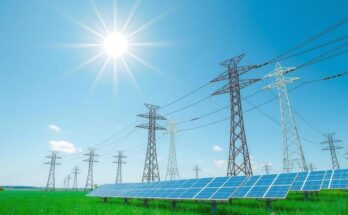Speaker Abbas Tajudeen announced that Nigeria could earn $2.5 billion annually from trade with Morocco. He stressed the need to remove trade barriers to enhance bilateral relations. Various stakeholders, including the Minister of Industry, Trade and Investment, have emphasized the importance of legislative review and collaboration in boosting trade sectors such as agriculture and renewable energy.
Honorable Abbas Tajudeen, Speaker of the House of Representatives, indicated that Nigeria could potentially generate approximately $2.5 billion annually through enhanced bilateral trade with Morocco. This statement was made by the Majority Leader, Hon. Julius Ihonvbere, during a meeting focusing on Nigeria-Morocco trade relations, emphasizing the need for improved dialogue among stakeholders.
A statement released by Abbas’s Special Adviser, Musa Krishi, revealed that the current trade relationship between Nigeria and Morocco has shown only a modest increase, now at 1.88 percent over the past five years. Abbas suggested that by eliminating existing trade barriers, the opportunities for significant growth in exports and imports between the nations could be realized.
He expressed hope that the ongoing discussions would lead to a thorough examination of trade relations, recommending necessary legislative changes to enhance interaction and allow businesses in both countries to capitalize on the African Continental Free Trade Area (AfCFTA) as well as other bilateral agreements aimed at stimulating GDP growth.
Abbas further committed to collaborating with key agencies, including the Federal Ministry of Industry, Trade and Investment, and the Federal Ministry of Foreign Affairs, to address and resolve trade barriers. He expressed readiness to work with the Moroccan Parliament through the Parliamentary Friendship Group to expedite any legislative necessities.
Dr. Olajumoke Oduwole, Minister of Industry, Trade and Investment, confirmed that the Finance Minister, Dr. Wale Edun, affirmed the government’s commitment to prioritize the AfCFTA. She commented on the ongoing review of double taxation issues, highlighting the need for broader stakeholder involvement.
Trade between the two nations primarily encompasses petroleum, agriculture, telecommunications, and financial technology. Oduwole noted that although trade volumes are gradually increasing, there remains significant potential for enhancement, particularly in banking, telecommunications, and renewable energy sectors.
The Ambassador of Morocco to Nigeria, Tagma Moha Ou Ali, pointed out the historical ties and collective aspirations shared between both nations. He acknowledged the progress made in trade and stressed the importance of bolstering agricultural and industrial collaboration, while encouraging Moroccan and Nigerian financial institutions to support trade initiatives.
The potential for Nigeria to substantially increase its annual earnings from trade with Morocco to $2.5 billion has been highlighted by Speaker Abbas Tajudeen. Efforts to remove trade barriers, enhance legislative cooperation, and address taxation issues are crucial for fostering stronger economic ties. With a focus on diverse sectors and mutual support from government and financial institutions, both countries can unlock further opportunities for growth in their bilateral trade relations.
Original Source: www.thisdaylive.com




